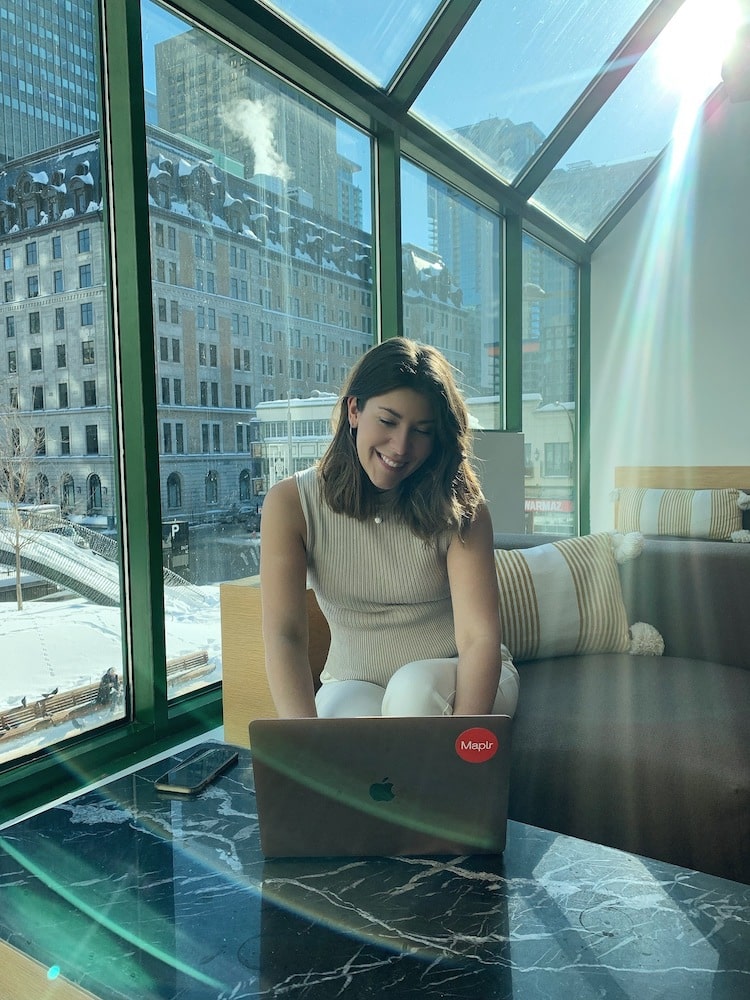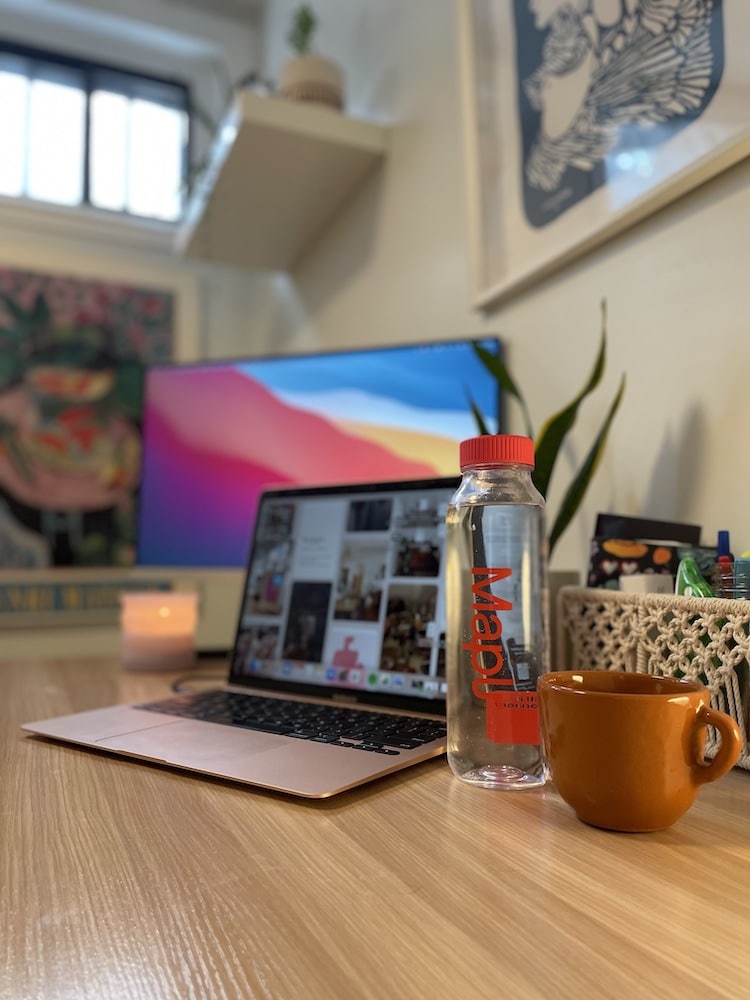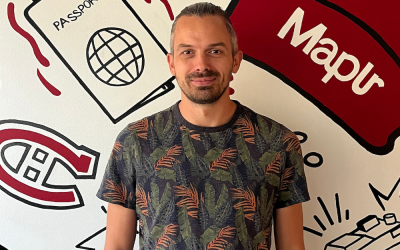If, as a developer, "job interview" rhymes for you with anxiety, you're in the right place. In this article, we'll look at how to prepare yourself for this crucial stage in the recruitment process. A few tips and tricks will be explained to give the recruiter the best impression. We'll also look at how to prepare for the technical interview. We'll also take a look at video interviews, which are becoming increasingly popular with companies!
But what's the point of maintenance?

Initially, for the company, the interview is an opportunity to find the nugget that fits its needs. The recruiter will talk to the candidate to learn more about his or her professional experience, but also to assess his or her personality. The idea is to assess how well the person will fit into the existing team or organization. In reality, the recruiter is not there to judge the person in front of him or her. Rather, the interview should be seen as a simple discussion.
And yes, it's also an opportunity for the candidate to assess whether the company and the proposed position are suitable for him or her, and to form an opinion about the working environment.
In short, each party evaluates the other in order to meet its own needs!
Is it necessary to prepare for a video interview?
It's very important to arrive prepared for your job interview. As we often say, it's the first impression that counts! We've adjusted our tips for a video interview, as this trend is becoming increasingly widespread.
⌚️ Punctuality: thenterviewing by videoconferencing saves you travel time to the company. Why not take the opportunity to check that your equipment is working properly and that you have the right link to connect? You can quickly test the sound of your computer and make sure your wifi connection is stable.
✨ Appearance : well, I know that since the pandemic, we've become accustomed to working in casual attire. However, it's important to adapt your outfit according to the company's sector and expectations. In tech, even if you don't have to wear a tie and shirt, you still need to look presentable. At the very least: avoid pyjamas to show that you've made an effort and are taking this meeting seriously!
🔇 A quiet place: to avoid adding to your stress, it's essential to choose a quiet, undisturbed location. It will also be more pleasant for the recruiter to hear no background noise and have your full attention.
😁 Putting the recruiter at ease: it's clear that it's harder to establish contact over a video, just as you can't shake hands. To make up for this and still set up a warm atmosphere, you can rely on your best smile to show that you're happy to be there. Keeping eye contact throughout the exchange via your screen will also keep the recruiter's attention.
🔎 Company research: demonstrating that you know the company well is always a plus! A little research on the company's website will make you seem more interested and motivated. What's more, it shows that you're aware of the organization's values and mission. And, believe me, as a recruiter, we appreciate these details.
👉 Click here to find out why so many developers are moving to Canada 👈
💬 Preparing for possible questions: here we are! The recruiter will inevitably ask you to describe yourself and talk about your professional experience. The idea here is to summarize by mentioning the most relevant. The aim is not to recite your entire CV. After all, the recruiter has it in front of him or her and will have already consulted it. This is a good time to stand out from the crowd by demonstrating your ability to express your ideas clearly.
👉 For example, you could start by mentioning where you went to school, and what it meant to you. Then you can explain how you have contributed to different projects in the company, and also what you have brought to your team.
It's also important to adapt your speech to the person in front of you. In a job interview for a developer, the recruiter is not a developer himself. You must therefore be careful not to use too many technical terms. Once again, it's important to synthesize your speech and keep it as relevant as possible.
👉 '' I worked for two years on a project in the field of (...). My role was to (...) and my team consisted of (...) members. On this project, I worked with (...) technologies and (...) versions. I enjoyed my experience because I learned (...) which enabled me to improve my (...) skills.
This is also the time to mention why you want to work for the company in question. This shows once again that you're interested in the company's background.
📝 Note-taking: it's a good idea to take notes on the information the recruiter will share with you: on the job description, on working conditions, on company projects, etc. This shows a sense of organization and emphasizes once again the interest you have in the position and the exchange. Just a few points are enough. And don't spend the whole interview with your eyes glued to your notebook!
❓ Questions: asking questions at the end of the interview is a good idea! Once again, it underscores your interest in the position. For example, you could ask, "What are the current projects?" How are the teams organized? How often do managers meet with employees to give feedback?

To conclude, here are a few tips on what not to do in an interview:
👉 Reciting your CV : it's boring for you and your interviewer!
👉 Being over-confident : it won't make a good impression in the recruiter's eyes and could cost you the rest of the recruitment process...
👉 Monopolize the conversation You have to give the recruiter time to bounce back on what you've said. The idea is really to see the interview as a fluid discussion where we both exchange information.
👉 Doing something else As mentioned earlier, the interview is a time for exchanging ideas and listening to each other. Doing anything else, such as working or checking e-mail, will be seen as disrespectful or uninteresting by the recruiter. It's best to give your undivided attention for those 30 to 45 minutes, and leave out any distractions!
Greg and Antonin's tips for preparing for the technical interview
To begin with, there aren't many differences between technical interviews in Europe, for example in France, and those in Quebec.
The first piece of advice Antonin, our Tech Advocate, would give you is to trust yourself. It's not uncommon for developers to suffer from impostor syndrome. In fact, you should try as hard as possible to put it aside and show that you're competent. If you've reached this stage of the recruitment process, it's because your profile and background are interesting, and the person evaluating you is aware of your level of experience! All you have to do is remain honest and transparent about your skills. Stick to the technologies you're really comfortable with. At the end of the day, what's really important is to be able to demonstrate that you're using good coding practices and that you're constantly evolving.
Their second piece of advice, which also comes from Greg, Tech Advocate, is to stay succinct. You don't need to mention all your experience, just the most important ones, and above all, target those that are relevant to the interview. Clearly, it won't do you any good to talk about technologies that have no connection with the position for which you're being evaluated, or to mention technologies you no longer wish to work with. That said, you could mention the latter two points if they've helped you discover something about yourself, and thus bring a positive aspect to your career. Then, a good way of answering technical questions would be to draw examples from your past experiences.
Their third tip is to prepare a bank of technical words. Being able to put names to what you do every day shows your interviewer that you understand why you do things the way you do. It's important to keep the theory in mind, because it will be difficult to explain what you do in practice if you can't name the right patterns. Antonin even confided to us that he had difficulty in his first technical interviews, because despite his experience, he wasn't able to say the right technical terms, and this caused him to fail...
In conclusion, don't be afraid to show confidence, because you're competent, but don't forget to stick to what you know well. Also, don't beat around the bush when explaining your educational background to professionals, stick to the essentials. Finally, keep in mind the technical terms of what you do on a daily basis, as this will enable you to assert your knowledge to your interviewer.



